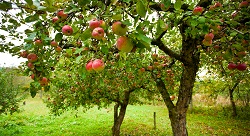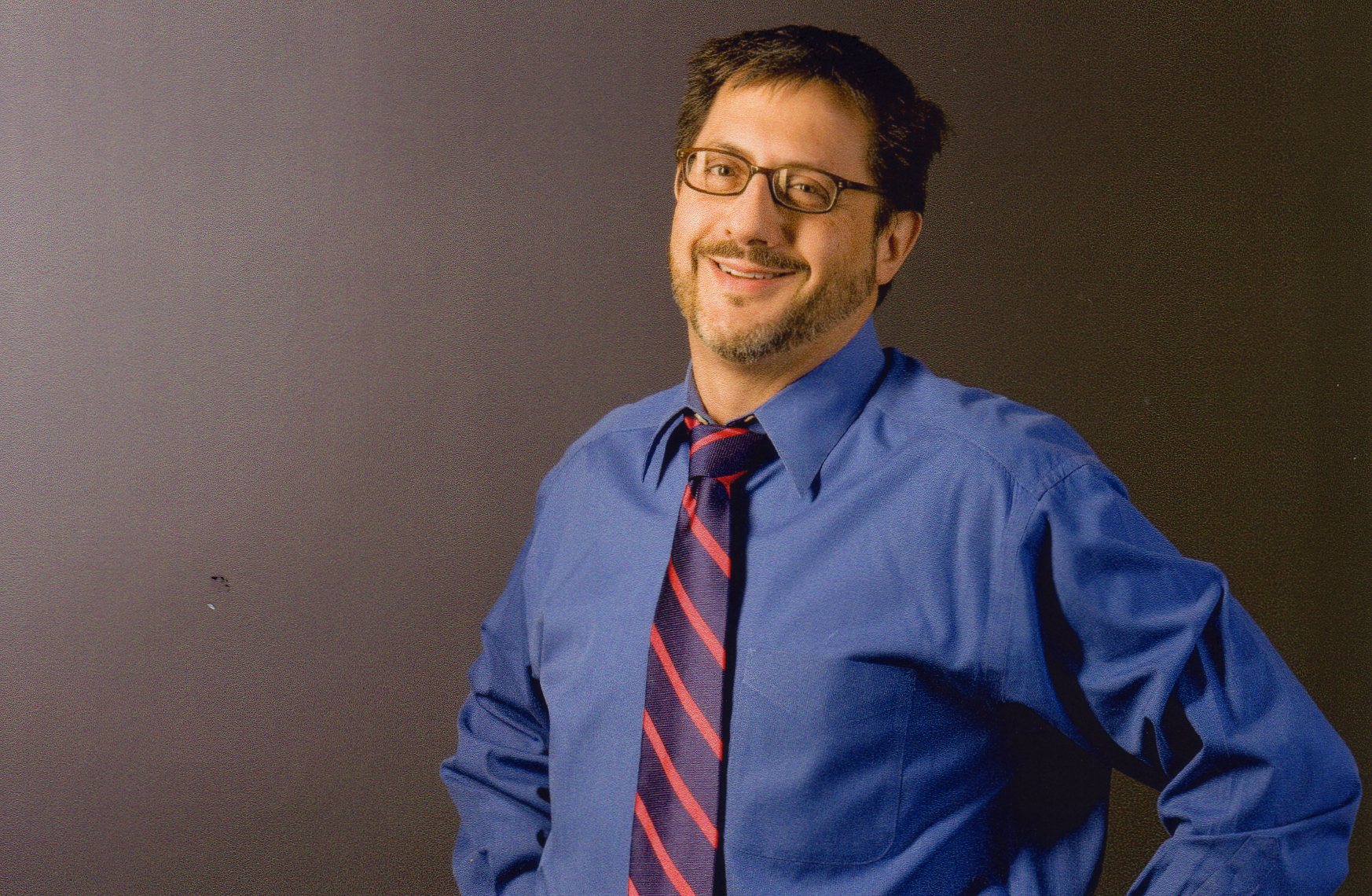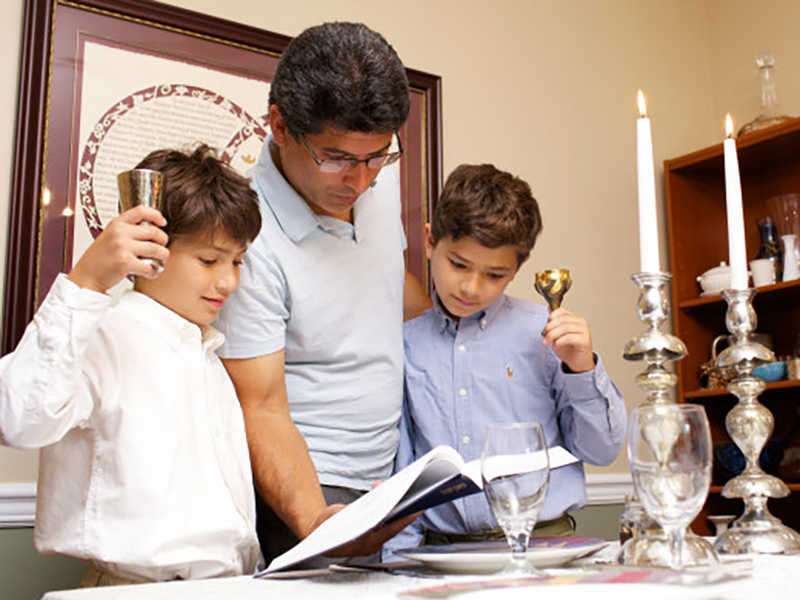
One Yom Kippur, a rabbi was warning his congregation about the fragility of life.
“One day everyone in this congregation is going to die,” he thundered from the bimah.
Seated in the front row was an elderly woman who laughed out loud when she heard this.
Irritated, the rabbi said, “What’s so funny?”
“Well!” she said, “I’m not a member of this congregation.”
Membership and affiliation aside, the most important lesson we learn in life is that one day it will end: one day we are going to die. That is the great lesson and gift of this week’s parashah, B’reishit with its iconic tale of Adam and Eve in the Garden of Eden. Amidst all the lush greenery, flowing rivers, and natural beauty of the garden, at its center stood two trees. All of the trees and their fruits were permitted to human beings as food, except for the Tree of All Knowledge and the Tree of Life. We read:
God Eternal then commanded the man, saying, “You may eat all you like of every tree in the garden — but of the Tree of All Knowledge you may not eat, for the moment you eat of it you shall be doomed to die.”(Gen. 2:16-17)
When they eat from the Tree of All Knowledge, the knowledge they get is that one day they are going to die. Before the forbidden fruit, they didn’t even know death was part of the equation. Now they know and it scares them — to death. They like the garden: life there is beautiful, they don’t want it to end, and standing right next to the Tree of All Knowledge is the answer to their anxiety — the Tree of Life. One bite from that fruit and they will live forever. This terrifies God. We read:
God Eternal then said, “Look, the humans are like us, knowing all things. Now they may even reach out to take fruit from the Tree of Life and eat, and live forever!” So the Eternal God drove them out of the Garden of Eden to work the soil from which they had been taken. (Gen. 3:22-23)
God kicks them out of the Garden of Eden — not as punishment, but as a blessing: If they think they will never die then how will they truly live? If you have eternity then there is no urgency for anything; with unlimited tomorrows, everything can wait.
The German existentialist Martin Heidegger, in his masterwork Being and Time, taught this: he said that in order to truly live authentically we have to confront death head-on. In other words, knowing that I am going to die is what allows me to truly live. Heidegger wrote:
"If I take death into my life, acknowledge it, and face it squarely, I will free myself from the anxiety of death and the pettiness of life — and only then will I be free to become myself." (Heidegger)
But as Ernest Becker wrote in his Pulitzer Prize-winning masterwork, The Denial of Death, even though we objectively know that we are all going to die, we don’t actually believe what we know to be true. Becker’s work is important because of his astute observation that our obsession with not dying actually gets in the way of our fully living. We are so focused on outwitting, outlasting, and outplaying death, staying in our own Garden of Eden, that we make amazingly selfish choices in life. We set up what Becker calls “immortality systems” — non-rational belief structures that give way to the belief that we are immortal.
For example, we try to buy immortality by accumulating possessions and wealth, as if our things will somehow protect us when death comes knocking. We take on heroic roles in our business or our household: we think that if we make ourselves indispensable, death can’t touch us. “I can’t die this week; I have a sales meeting on Thursday.”
Judaism suggests a different approach to death and to life. Rather than deny death, Jewish tradition instructs us to embrace it. Judaism teaches that we should live each day as if it is our last because we don’t know, it very well may be (Babylonian Talmud, Shabbat 153a).
Imagine, as God does in this parashah, if human beings directed all the energy they focus on not dying toward the more sacred goal of truly living. How would you fill each moment of every day if you truly knew and understood that you will never get that moment back once it has passed is gone forever? The psalmist declares:
“The span of our life is seventy years, or given the strength, eighty years; ... and they pass by speedily and we are in darkness; Teach us to count our days rightly, that we may attain a wise heart” (Psalm 90:10, 12).
The wise person, our Rabbis teach, counts each day and makes each day count. Knowing that our days are numbered helps us clarify our priorities and our purpose. Our most precious possession is not money or things: you can always get more of those. No, our most precious and finite possession is time.
Henry David Thoreau wrote:
“I went to the woods because I wished to live deliberately ... I wanted to live deep and suck out all the marrow of life, To put to rout all that was not life, and not when I had come to die discover that I had not lived.” (Thoreau, Walden [reissue ed., Princeton: Princeton Univ. Press, 2016])
When Adam and Eve are kicked out of the garden, the Torah records the very first thing they do. “And Adam knew his wife Eve and she bore him a son” (Gen. 4:1). They have a child: the very realization of “I’m not going to live forever” is answered with our best attempt at immortality — progeny.
And so, a final question remains. Where is the true paradise? Is it in the Garden of Eden where no one ever dies and time is limitless? Or is it East of Eden, outside the garden, where every moment is precious, every decision is life changing, and the fruit, sometimes bitter, compels us to appreciate the sweet?
Rabbi Dan Moskovitz is senior rabbi at Temple Sholom in Vancouver, BC, and author of “The Men’s Seder” (MRJ Publishing). Rabbi Moskovitz is also chair of the Reform Rabbis of Canada. His writing and perspective on Judaism appear in major print and digital media internationally.

“It is a fearful thing, to love what death can touch … ” (Mishkan T’filah [NY: CCAR, 2007] p. 594)
This poem by Chaim Stern is one of the “go-to” readings before Mourner’s Kaddish at my congregation. With that single line, I can be lost in thought. Even with many opportunities, I’ve never heard the full poem read out loud.
As Rabbi Dan Moskovitz discusses in his commentary about Parashat B'reishit, death creates an urgency for living. Anyone who risks loving what death can touch is declaring that the power of death has limits. Death can take the body, but cannot defeat love.
The Garden of Eden offered a unique opportunity to experience a world of beauty in direct relationship with God. Twice, the text hints that Adam didn’t start out there. Genesis 2:8 says that God “… placed (vayaseim) the man there.” Genesis 8:15 says God “… took (vayikach) the man, placing him in the Garden of Eden ...”
What does the text tell us when it says that Adam was moved from some “before place” into the garden? Adam should have known exactly what was at risk disobeying God: life on the outside. And why was Eden stacked — by God — with temptations: two powerfully endowed trees?
Until the Garden of Eden, Adam had no agency. Agency is the capacity to act independently and to make free choices. Adam had none. God created him, moved him to the garden, and gave him a task, to tend and to guard it. Adam was acted upon by God.
God begins to give Adam agency with the authority to name the creatures. That agency is exemplified by the presence of the two trees: Adam and Eve can follow the will of God, or they can eat from one — or both — of those trees.
In teaching this story, Rav Mike Feuer of the Pardes Institute of Jewish Studies says that the test of Adam’s agency occurs after eating the fruit. God asks: “Where are you (ayekah)?” Adam immediately blames Eve. He hides and blames. So does Eve. Neither are honest in their responses to God.
The story could have been different if they took responsibility for the consequences of their agency, Rav Mike teaches. If they’d said, “God, we messed up,” it could have been a real conversation. But they weren’t ready to be in full relationship with God.
The journey outside of the Garden of Eden will be touched by death. In our days and years, how will we use the gift of agency? To better our world? To live in righteousness and charity? To love what death can touch?
Here's a meditation on loving what death can touch called, "Every Beginning."
Every beginning brings an ending.
Every ending brings a beginning.Ancient One,
This is the joy and the grief,
The plenty and the famine,
The dance and the dirge
Of life
Alive and awake
In Your world.How wonderful is this living?
How glorious the light from heaven?
How stunning the radiance that surrounds you
My beloved,
Holy and new, luminous with wonder?
How marvelous this place where earth and sky touch?How strange is this dying?
How melancholy that one day we will
No longer hear sweet voices,
See sweet faces,
Share whispers and secrets,
Laughter and heartbreak?
How much more, my darlings,
Should we love today?
How much more, my children,
Should we savor and rejoice?Every beginning brings an ending.
Every ending brings a beginning.Blessed is God’s Holy Name.
(Alden Solovy, “Every Beginning,” in This Joyous Soul: A New Voice for Ancient Yearnings [NY: CCAR Press, 2019], p. 29)
Alden Solovy is a liturgist and educator based in Jerusalem. His current book, This Joyous Soul: A New Voice for Ancient Yearnings, was recently published by the Central Conference of American Rabbis. Read his work at tobendlight.com.
B’reishit, Genesis 1:1−6:8
The Torah: A Modern Commentary, pp. 18–55; Revised Edition, pp. 17–50
The Torah: A Women’s Commentary, pp. 3–34
Haftarah, Isaiah 42:5–43:10 (11)
The Torah: A Modern Commentary, pp. 320−325
Explore Jewish Life and Get Inspired
Subscribe for Emails



